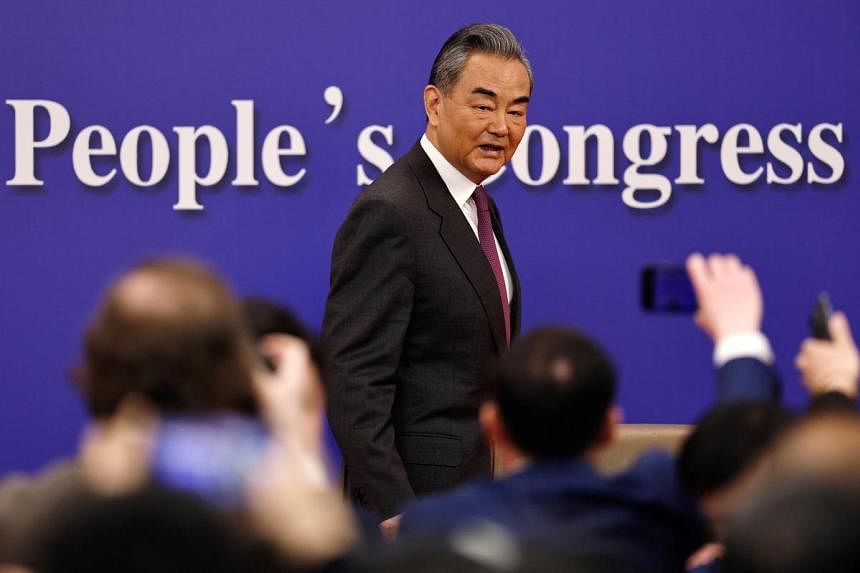BEIJING – China has signalled its intentions to be a good neighbour, listing its efforts to get along with countries in the region, even as it warned that it would not allow “its goodwill to be abused”.
“We are neighbours who cannot move. Asia is our common home,” said Chinese Foreign Minister Wang Yi, noting that China has collaborated with its neighbours on projects like the China-Laos Railway, the China-Pakistan Economic Corridor and the China-Central Asia Natural Gas Pipeline.
In the same spirit of neighbourliness, China has been “highly restrained” over territorial spats in the South China Sea, but it would not brook any provocation, he said on the sidelines of China’s annual parliamentary meetings on March 7.
China will “legitimately defend” its rights in the South China Sea, he said.
“We advise certain countries outside the region not to stir up trouble, choose sides, and not to become troublemakers in the South China Sea,” said Mr Wang, without naming any country.
His comments came on the back of increased tensions in the South China Sea in the wake of clashes between China and the Philippines.
In the latest face-off at a contested reef on March 5, Manila said four crew members on one of its military supply ships were injured after Chinese coast guard ships used water cannon on it.
China said the Philippine vessels ignored warnings and illegally entered its waters and deliberately collided with the Chinese ships.
Beijing claims almost the entirety of the South China Sea, where the Philippines and other South-east Asian states have competing claims.
In 2016, the Permanent Court of Arbitration in The Hague found that China’s claims of owning almost the entire South China Sea had no legal basis – a ruling that Beijing has rejected.
At the wide-ranging press conference with domestic and international reporters, Mr Wang, when asked about the Korean peninsula, said China does not want to see increasing tensions there.
“The world is already in chaos, and there should not be another war or chaos on the peninsula.
“The top priority is to stop the intimidation tactics and restart dialogue to resolve security concerns, especially those held by North Korea,” Mr Wang said.
Ties between Pyongyang and Seoul have worsened since the start of the year. China shares a border with North Korea, and is Pyongyang’s closest ally.
North Korean leader Kim Jong Un declared in January that unification with South Korea was no longer feasible, and in February ordered that engagement with its neighbour in the south stop.
South Korean President Yoon Suk-yeol has bolstered defence cooperation, including expanding joint drills with the United States and Japan, since taking up office in 2022 to counter Pyongyang’s growing threats.
He has given permission for South Korea’s military to “act first, report later” if provoked by Pyongyang.
Unlike in the past two years, questions on China’s relationships with its more contentious neighbours Japan and India did not come up this time during the Foreign Minister’s press conference, where Mr Wang fielded a wide range of questions over 90 minutes.


